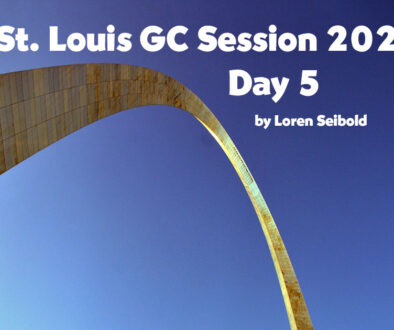Defeating a Deficiency Disposition
by Christopher C. Thompson | 24 August 2023 |
I’ve been thinking about the words and the works of Jesus a lot lately. For the sake of this conversation, for just a minute, let’s set aside his status as the Savior of the world. Let’s just focus on his words. At face value, the words of Jesus are so iconic that his words alone make him one of the most influential individuals of all time.
I remember hearing someone say once that when we look at the words of Jesus we have to acknowledge that he’s either insane, or he’s exactly who he says he is. You have to admit Jesus made some really bold claims.
You probably didn’t know this, but in the early church period, Christians were believed by some to be cannibalistic. Can you guess where that belief came from? It was because of Jesus’ own words about eating his flesh and drinking his blood. There were those outside of the church who heard the phrase and assumed that it was literal. It’s those kinds of statements that make Jesus extremely radical. Nevertheless, there are other statements that are far more radical than the flesh and blood because of what it represented then, and what it represents to us today.
Today I’m thinking specifically about the miracle of the feeding of the five thousand. The miracle alone is unforgettable. Yet, there were some things that Jesus said in the midst of that event that are downright iconic. Actually, there were two things in particular that he said that have been running through my mind for weeks. I want to share them with you here because I think they are instructive for our daily lives and the way we approach ministry work.
Iconic Statements
When Jesus had finished teaching the people, it was getting late. The crowd had followed Jesus and the disciples to a desolate place, so the journey home would require more than just a simple walk around the block. One of the ways we know this is because the disciples approached Jesus and urged him to let the people start heading to town so that they could buy food. The suggestion here is that they were at a far enough distance that they might not make it back to the shops and markets before they closed. However, Jesus’ response shocked them, and even challenges us today. Jesus said, “You give them something to eat.”
I absolutely love that line! Now the context and the text itself suggest that the disciples don’t have any food. However, even if they did have food, they certainly didn’t have enough to feed 5,000 men (not counting the women and children).
I’ve been wrestling hard with this. John’s gospel says that the reason Jesus said this is because “he already had in mind what he was going to do” (John 6:6b NIV). Here’s what I’m wrestling with. The tension in the text is that ultimately it was still the disciples that fed the people. Jesus gave them directions to have the people sit down in manageable groups. Then he passed the food to the disciples as the miracle was taking place in his hands. The disciples then delivered the food to the people. So ultimately, they did give the people something to eat as he originally had challenged them. They were the executors of the miracle, even though they had no idea it was even possible in the beginning.
I would like to take this a step further, though. What if Jesus said, “You give them something to eat,” and then Peter, James, and John said, “OK, we got this.” “Andrew, you get the baskets.” “Thomas, you grab those jugs because we’ll need wine.” Remember, they had already seen him perform a wine miracle. “Philip, you go get some napkins, because this is about to get messy!” What if the challenge from Jesus activated their faith in such a way that it ignited them to prioritize the task of ministry with an unwavering expectation that divine power would meet their limitations for a successful mission?
I believe that same challenge abides with us today. I can hear Jesus ordering us, “You give them something to eat,” and I wonder what would happen if we faced the challenge head-on with abiding faith.
Then the second statement that really stands out to me was spoken after all the work was done. “Gather the pieces that are left over. Let nothing be wasted” (John 6:12b NIV). If this was a miracle, why would God produce too much? Why would God even allow there to be the potential for waste afterward? The answer is in the statement which is what I believe is so profound. There is a double miracle here. Not only did the 5,000 get fed, but as Jesus was breaking the bread and fish, divine omniscience kicked in and the Son of God was suddenly aware that the message of God’s providence would on that night be extended to everyone within the twelve disciples’ circles of influence. Whoever they met would hear the story of the miracle, but they would also be able to “taste and see that the Lord is good.” God not only provided for the multitude in the wilderness, but also for the homes of each of the disciples and all their neighbors back in the city limits.
I wonder why we operate from a disposition of deficits and deficiencies. Our God is the source of everything that is good. There has never been a need that God did not provide for us, especially when we were overwhelmed with desperation and we resigned to operate and navigate by faith. When has God ever failed you? When has God ever proved to operate according to lack, deficiency, or limitation?
I believe this is a clarion challenge to us today and beyond. We are living in a moment that demands living and abiding faith. I am inspired to believe the God of abundance.
Living It Out
Among the many hats I wear, I run a 501(c)(3) organization that provides academic and social support to students that are at-risk. Our number one challenge is space, because we operate out of a little building that can only house about twenty students. Worse yet, the pandemic almost shut us down completely. By the end of the pandemic, we had zero students enrolled. Well, we’re back in action now! We went from zero students to potentially 90 students in just eight months. We went from one building to now three, as two other schools were offered to us to use as host sites for our program. One principal practically rolled out the red carpet, and then the vice chairman of the school board saw our program and asked, “Can you duplicate this in an additional school?” I said, “Ummm…sure we can!”
But then reality set in. All of this is happening too fast. We’re not ready. We need more time. We need more resources. Nevertheless, the people are hungry, and the food is literally multiplying in the hands of Jesus.
Today I got a call from the secretary of our board of directors. I confessed to her, saying, “I’m terrified! This is all moving too fast. We don’t have the staff we need, and we need money.” She chided me. saying, “No fear! Do not let yourself be afraid! You have candidates to fill the positions. We will find the money. We have work to do for these students!” What I can’t deny is, she’s absolutely right.
Once again I hear Jesus saying, “You give them something to eat, and save some for the students whom you will need to serve later.” I guess the only thing left for us to do now is to start passing out plates.
 Christopher C. Thompson writes about culture and communication at thinkinwrite.com. He’s the author of Choose to Dream. When not writing, he’s jogging or binge-watching Designated Survivor. He’s married to Tracy, who teaches at Oakwood University.
Christopher C. Thompson writes about culture and communication at thinkinwrite.com. He’s the author of Choose to Dream. When not writing, he’s jogging or binge-watching Designated Survivor. He’s married to Tracy, who teaches at Oakwood University.




